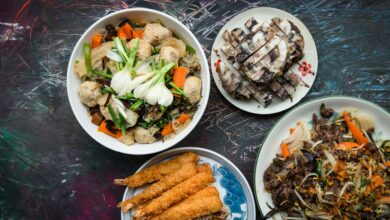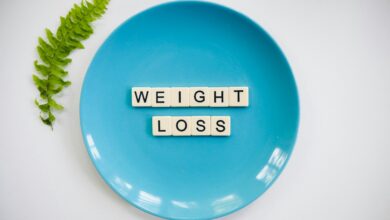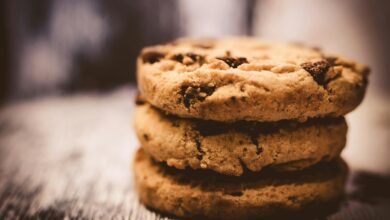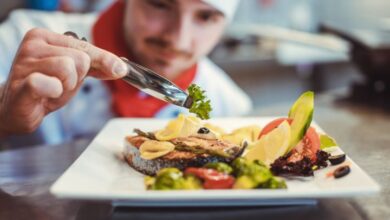A Guide to Energy Boosting Foods: What To Eat To Stay Active And Alert Throughout The Day

In today’s fast-paced world, staying active and alert throughout the day can be a challenge. From long work hours to personal commitments, our daily lives demand energy and focus. One of the most important ways to maintain energy levels and mental clarity is through proper nutrition. The foods we consume directly impact our stamina, cognitive function, and overall vitality. In this article, we will explore the best energy boosting foods for sustained energy and how to structure your meals to stay energized all day long.
Understanding Energy from Food
Before diving into specific foods, it’s essential to understand how the body derives energy from the food we eat. Our primary sources of energy come from three macronutrients: carbohydrates, proteins, and fats.
1. Carbohydrates
Carbs are the body’s preferred source of energy. When consumed, they are broken down into glucose (sugar), which is then used by cells for fuel. Carbohydrates have two types: simple and complex. Simple carbs (like sugary snacks) provide quick energy but lead to energy crashes, while complex carbs (such as whole grains) provide sustained energy.
2. Proteins
While primarily used for muscle repair and building, protein also plays a role in energy production, particularly during long bouts of physical activity when carbohydrate stores are depleted.
3. Fats
Healthy fats provide a long-lasting source of energy because they take longer to digest. While not used as quickly as carbohydrates, fats are essential for maintaining energy levels over extended periods.
4. Micronutrients (Vitamins and Minerals)
These support energy production at the cellular level. Nutrients like B vitamins, iron, and magnesium are vital in converting food into usable energy.
Energy Boosting Foods
The key to maintaining consistent energy throughout the day is choosing foods that provide a steady release of glucose into the bloodstream, helping avoid spikes and crashes. Let’s break down some of the best energy boosting foods. For more tips on making healthier food choices, check out this guide on decoding food labels here.
1. Whole Grains


Whole grains like brown rice, quinoa, oats, and whole wheat are abundant in complex carbohydrates and fiber. These carbs take longer to digest, which prevents spikes in blood sugar and offers sustained energy. Fiber also aids in digestion, further regulating energy levels.
- Example: A bowl of oatmeal with mixed berries and a drizzle of honey in the morning provides lasting energy for hours.
- Why it works: Whole grains release glucose steadily, avoiding the energy highs and lows that refined grains (like white bread) can cause.
2. Leafy Greens
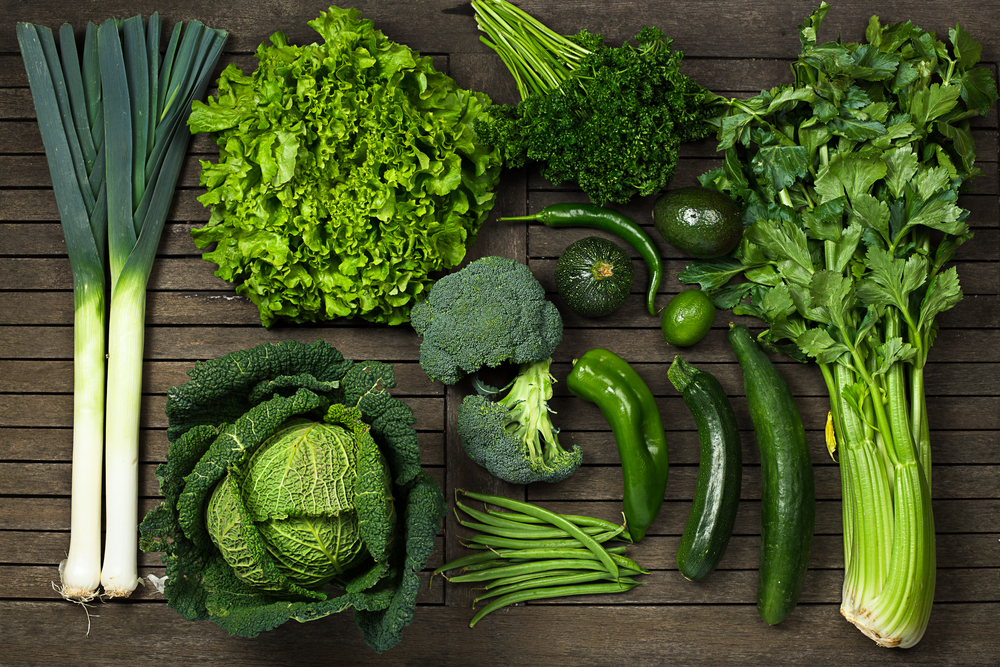

Spinach, kale, and other leafy greens are packed with iron, magnesium, and essential vitamins that help the body produce energy. Iron is crucial for carrying oxygen to cells, and without it, you can feel fatigued.
- Example: A spinach salad with grilled chicken and a sprinkle of seeds provides a nutrient-dense meal that supports energy production.
- Why it works: Iron-rich foods prevent fatigue, especially for those who may be at risk for iron deficiency, such as women or athletes.
3. Nuts and Seeds
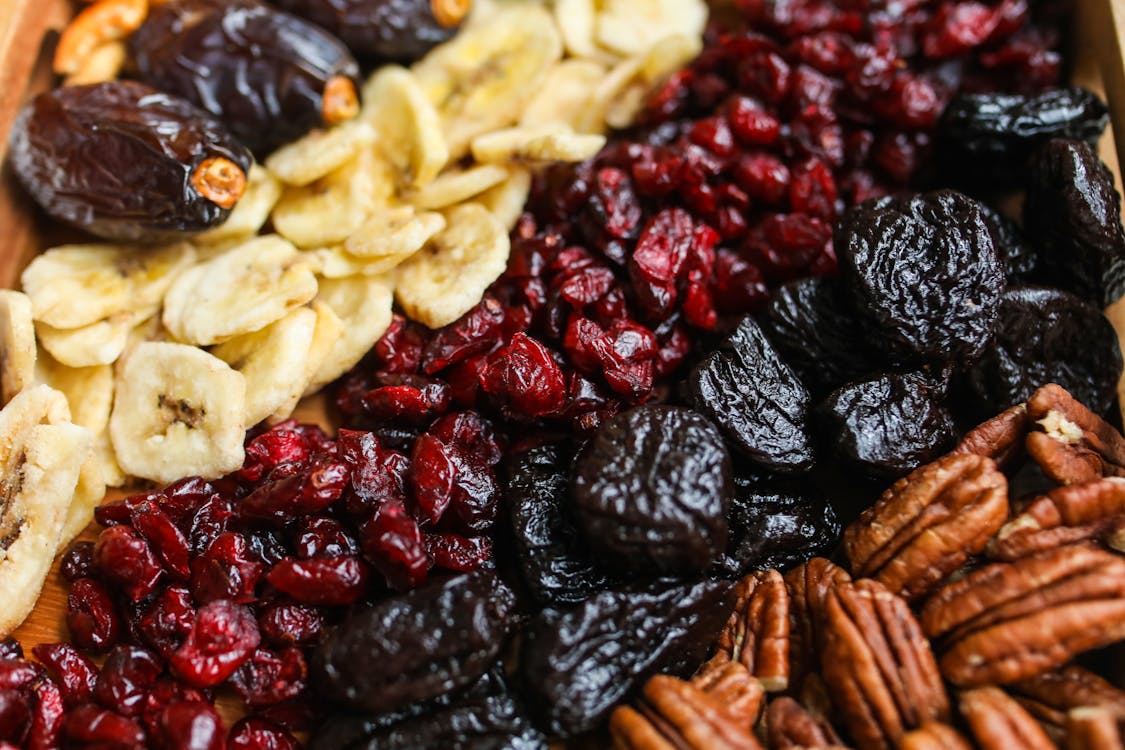

Almonds, walnuts, chia seeds, and flaxseeds are high in healthy fats, protein, and fiber which makes it one of the energy boosting foods. They provide a slow-release source of energy and are rich in magnesium, which helps break down glucose into energy.
- Example: A handful of almonds or a tablespoon of chia seeds added to a smoothie can keep you feeling energized between meals.
- Why it works: The combination of fats, protein, and fiber ensures a gradual release of energy rather than a quick burst followed by a crash.
4. Lean Proteins


Chicken, turkey, tofu, eggs, and fish are great sources of lean protein that help maintain energy levels by providing a steady fuel source. Protein also helps build and repair muscles, making it crucial for those engaging in physical activity.
- Example: A grilled chicken breast with quinoa and steamed vegetables makes for a balanced, energy-boosting meal.
- Why it works: Protein takes longer to digest, providing sustained energy and helping to keep you feeling full and focused.
5. Legumes


Beans, lentils, chickpeas, and other legumes are high in complex carbohydrates, fiber, and protein. These foods are excellent for providing slow-releasing energy, making them a great choice for meals and snacks.
- Example: A lentil soup or chickpea salad can serve as a hearty and energizing lunch.
- Why it works: The fiber and protein in legumes stabilize blood sugar levels, preventing energy dips.
6. Fruits


Fruits like bananas, apples, berries, and oranges are natural sources of simple carbohydrates that make it one of the energy boosting foods. Bananas, in particular, are rich in potassium and vitamin B6, both of which are involved in energy metabolism.
- Example: A banana or an apple paired with peanut butter makes a perfect energizing snack.
- Why it works: Fruits offer a natural source of quick energy without the crash associated with processed sugars.
7. Yogurt and Fermented Foods


Greek yogurt, kefir, and other fermented foods are high in protein and probiotics, which aid in digestion and improve gut health. A healthy gut is crucial for energy production, as it allows for better absorption of nutrients.
- Example: A serving of Greek yogurt with granola and fresh fruit is a delicious and energizing breakfast or snack.
- Why it works: Probiotics improve digestion, ensuring that the body efficiently converts food into energy.
8. Healthy Fats


Avocados, olive oil, and fatty fish like salmon provide essential fatty acids that serve as a long-lasting energy source. These healthy fats are also anti-inflammatory, supporting overall health and reducing fatigue.
- Example: Avocado toast with whole grain bread or a salmon salad is both nourishing and energizing.
- Why it works: Healthy fats offer a slow-burning source of energy, helping you stay alert over longer periods.
Structuring Meals with Energy Boosting Foods for All-Day Vitality
Beyond choosing the right energy boosting foods, how you structure your meals throughout the day plays a crucial role in maintaining energy levels.
1. Balanced Breakfast
Begin your day with a balanced breakfast that features protein, healthy fats, and complex carbohydrates. This combination will provide sustained energy and prevent mid-morning crashes.
- Example: A whole grain toast with avocado, an egg, and a piece of fruit.
- Why it works: Combining protein, fats, and carbs stabilizes blood sugar and provides lasting energy for the morning.
2. Smart Snacking
Avoid sugary snacks that cause spikes and crashes in blood sugar. Instead, opt for nutrient-dense snacks that combine protein and fiber.
- Example: An apple with almond butter, or a handful of nuts and seeds.
- Why it works: These snacks help keep blood sugar stable, providing sustained energy between meals.
3. Well-Balanced Lunch
Lunch should consist of a combination of protein, healthy fats, and complex carbohydrates. Avoid overly processed or high-sugar meals that can lead to an afternoon energy slump.
- Example: A quinoa salad with grilled chicken, mixed greens, and olive oil dressing.
- Why it works: This balanced meal provides all the necessary nutrients for steady energy through the afternoon.
4. Afternoon Snack
As energy starts to dip in the afternoon, choose a snack that can keep you going until dinner.
- Example: A small serving of Greek yogurt with some chia seeds or a handful of mixed nuts.
- Why it works: These snacks provide protein, fats, and fiber, which help prevent a late-afternoon energy crash.
5. Light but Energizing Dinner
For dinner, focus on lean proteins and non-starchy vegetables to avoid feeling overly full or sluggish before bedtime.
- Example: Grilled salmon with steamed broccoli and a side of quinoa.
- Why it works: This combination of protein and fiber supports muscle recovery and maintains energy levels through the evening.
How Hydration and Energy-Boosting Foods Work Together to Enhance Your Energy Levels
In addition to food, hydration is crucial for maintaining energy. Dehydration can result in fatigue, sluggishness, and trouble concentrating. Aim to drink plenty of water throughout the day and incorporate water-rich foods like cucumbers, watermelon, and leafy greens.
Tip:
Begin your day by drinking a glass of water upon waking to rehydrate after hours of sleep. Continue to sip water throughout the day, especially before, during, and after meals.
Say No to Energy Crashes: Fuel Up with Energy Boosting Foods
Certain foods can cause energy crashes and should be limited or avoided for optimal energy levels:
1. Sugary Snacks and Drinks
While they provide a quick burst of energy, they lead to crashes soon after.
2. Refined Carbohydrates
White bread, pastries, and other refined carbs spike blood sugar but don’t offer lasting energy.
3. Caffeine Overload
While coffee and tea can boost energy, too much caffeine can lead to jitters and an eventual crash.
4. Processed Foods
Highly processed foods are often stripped of nutrients and high in unhealthy fats and sugars, which can drain energy over time.
Summing Up
Maintaining energy and alertness throughout the day requires more than just a quick fix or a cup of coffee. By choosing nutrient-dense, energy boosting foods and structuring meals wisely, you can fuel your body for sustained energy, mental clarity, and optimal performance. Whether you’re powering through a busy workday or staying active with physical activities, proper nutrition is key to staying at your best.


